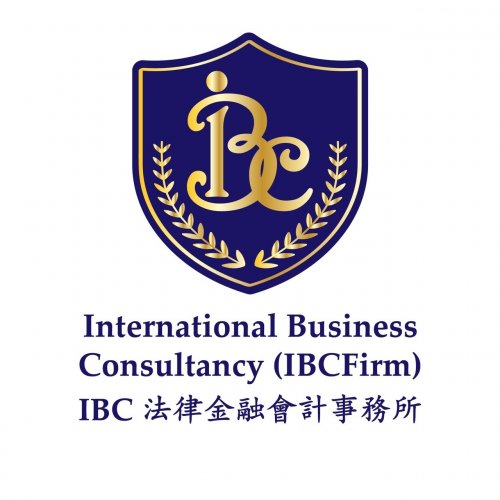Best Equity Capital Markets Lawyers in Bangkok
Share your needs with us, get contacted by law firms.
Free. Takes 2 min.
List of the best lawyers in Bangkok, Thailand
Legal guides written by SIAM LEGAL INTERNATIONAL:
- Defamation Laws in Thailand: Criminal Charges and Civil Suits
- The State of Thailand’s Long-Term Resident (LTR) Visa Program in 2025
- The Penalties Of Not Filing Your Income Tax Return As A Foreigner In Thailand
About Equity Capital Markets Law in Bangkok, Thailand
Equity Capital Markets (ECM) refer to the field of law and finance focused on raising capital by issuing shares of companies to investors, typically through exchanges like the Stock Exchange of Thailand (SET). In Bangkok, ECM activities include initial public offerings (IPOs), secondary offerings, rights issues, private placements, and equity-linked instruments. ECM law helps regulate the process of raising equity capital, ensuring transparency, investor protection, and compliance with local regulatory standards. The legal frameworks for ECM in Bangkok aim to foster confidence in the Thai capital market, attract foreign investment, and support healthy economic growth.
Why You May Need a Lawyer
Navigating the equity capital markets in Bangkok can be challenging due to complex laws and strict regulatory requirements. Legal assistance is commonly required in the following situations:
- Preparing and filing for an initial public offering (IPO)
- Advising on compliance with securities regulations and disclosure requirements
- Structuring and executing rights issues, private placements, or convertible securities
- Due diligence for mergers, acquisitions, or cross-border investments
- Drafting and reviewing prospectuses, shareholder agreements, and other key documents
- Dealing with the Securities and Exchange Commission of Thailand (SEC) or the SET
- Assisting with regulatory investigations, enforcement actions, or disputes involving ECM transactions
- Advising foreign investors or companies looking to raise capital in the Thai market
A specialized lawyer can help you avoid costly errors, ensure compliance, and protect your interests throughout the equity capital raising process.
Local Laws Overview
The regulatory environment for equity capital markets in Bangkok is governed primarily by these key laws and regulations:
- Securities and Exchange Act B.E. 2535 (1992): The principal law regulating the offer and sale of securities, including public offering requirements, disclosure obligations, and enforcement mechanisms.
- Securities and Exchange Commission (SEC) Rules and Notifications: These include requirements for prospectuses, listings, reporting, and corporate governance standards.
- Stock Exchange of Thailand (SET) Listing Rules: Companies seeking to be listed on the SET must comply with specific criteria regarding size, profitability, ownership distribution, and ongoing disclosure.
- Foreign Investment Laws: Restrictions and procedures for foreign shareholders, especially in certain protected sectors.
- Anti-Money Laundering and Know Your Customer (KYC) Requirements: Issuers and brokers must adhere to stringent KYC procedures for all investors.
Local laws are subject to ongoing updates, so regular consultation with an experienced ECM lawyer in Bangkok is crucial for staying compliant and minimizing risk.
Frequently Asked Questions
What is an Initial Public Offering (IPO) in Thailand?
An IPO is when a company offers its shares to the public for the first time and becomes listed on the SET. The process involves regulatory approvals, comprehensive disclosure, and meeting listing criteria.
Who regulates equity capital markets in Thailand?
The primary regulators are the Securities and Exchange Commission of Thailand (SEC) and the Stock Exchange of Thailand (SET).
Are foreign companies allowed to list on the SET?
Yes, foreign companies can list on the SET, but they must meet specific criteria and comply with additional disclosure and corporate governance requirements.
What documents are required for an IPO?
Key documents include a prospectus, financial statements, board and shareholder resolutions, legal opinions, and various statutory forms as prescribed by the SEC and SET.
What is the usual timeline for completing an IPO in Bangkok?
The typical IPO process in Thailand can take 6 months to over a year, depending on the readiness of the company and the complexity of the transaction.
Are there limitations on foreign ownership in Thai listed companies?
Yes, certain sectors are subject to foreign ownership restrictions as governed by the Foreign Business Act and related laws. Companies must monitor foreign shareholding levels closely.
What are the disclosure obligations for listed companies?
Listed companies must make timely disclosures of financial information, significant transactions, changes in management, related-party dealings, and other material events, in accordance with SEC and SET rules.
How are disputes involving ECM transactions resolved?
Disputes may be resolved through negotiation, mediation, arbitration, or litigation in Thai courts, depending on the nature of the conflict and relevant contractual terms.
What legal risks should investors be aware of?
Investors should be aware of market risks, potential fraud, insufficient disclosure, changes in regulation, and enforcement actions by regulators.
How can a lawyer assist in an ECM transaction?
A lawyer can help with regulatory filings, structuring deals, conducting due diligence, negotiating contracts, and representing clients in dealings with authorities or in disputes.
Additional Resources
Individuals or businesses seeking legal advice on equity capital markets in Bangkok can turn to the following resources:
- Securities and Exchange Commission of Thailand (SEC) - Regulatory information, rules, and forms related to securities and capital markets.
- Stock Exchange of Thailand (SET) - Guidance on listing requirements, disclosure obligations, and investor education.
- Thai Listed Companies Association - Support and representation for listed companies, including updates on regulatory changes.
- Thai Bar Association - Directory of lawyers experienced in securities and capital markets law.
- International Chamber of Commerce Thailand - Resources on cross-border investment and capital-raising issues.
Next Steps
If you require legal assistance in Bangkok related to equity capital markets, consider the following steps:
- Assess your situation and identify the specific ECM issue or transaction you plan to undertake.
- Gather all relevant documents and background information about your business and goals.
- Contact a qualified law firm in Bangkok with experience in equity capital markets for an initial consultation.
- Prepare a list of questions or concerns in advance to maximize the value of your meeting with the legal professional.
- Follow the lawyer’s guidance on regulatory compliance, required documentation, and timelines to ensure a smooth process.
Working with a seasoned ECM lawyer will help you navigate the legal complexities, safeguard your interests, and achieve your capital market objectives in Thailand.
Lawzana helps you find the best lawyers and law firms in Bangkok through a curated and pre-screened list of qualified legal professionals. Our platform offers rankings and detailed profiles of attorneys and law firms, allowing you to compare based on practice areas, including Equity Capital Markets, experience, and client feedback.
Each profile includes a description of the firm's areas of practice, client reviews, team members and partners, year of establishment, spoken languages, office locations, contact information, social media presence, and any published articles or resources. Most firms on our platform speak English and are experienced in both local and international legal matters.
Get a quote from top-rated law firms in Bangkok, Thailand — quickly, securely, and without unnecessary hassle.
Disclaimer:
The information provided on this page is for general informational purposes only and does not constitute legal advice. While we strive to ensure the accuracy and relevance of the content, legal information may change over time, and interpretations of the law can vary. You should always consult with a qualified legal professional for advice specific to your situation.
We disclaim all liability for actions taken or not taken based on the content of this page. If you believe any information is incorrect or outdated, please contact us, and we will review and update it where appropriate.















